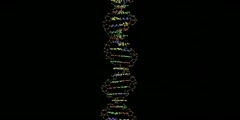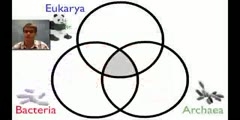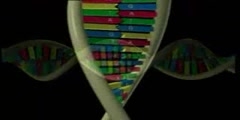Lec 11 - Life History Evolution
"Lec 11 - Life History Evolution" Principles of Evolution, Ecology and Behavior (EEB 122) Life history covers three main classes of traits in organisms: age and size at maturity, number and size of offspring, and lifespan and reproductive investment. Organisms must make tradeoffs among these traits that typically cause them to come to evolutionary equilibrium at intermediate values. Life history traits are evolutionary solutions to the ecological problems of the risk of mortality and the acquisition of food, and they are expressed in reaction norms that determine the particular traits that an organism will exhibit when its genes encounter a specific environment during development. 00:00 - Chapter 1. Introduction 04:53 - Chapter 2. Life History and the History of Ideas 08:56 - Chapter 3. Age and Size at Maturity 23:38 - Chapter 4. Size and Number of Babies 31:49 - Chapter 5. Lifespan and Aging 42:32 - Chapter 6. Summary Complete course materials are available at the Open Yale Courses website: http://open.yale.edu/courses This course was recorded in Spring 2009.
Video is embedded from external source so embedding is not available.
Video is embedded from external source so download is not available.
Channels: Ecology
Tags: Life history aging maturity offspring reproduction growth lifespan tradeoffs environment diversity reaction norms mortality fecundity
Uploaded by: yaleevoeco ( Send Message ) on 02-09-2012.
Duration: 45m 38s
Here is the next lecture for this course
History Of Life In 24 Hours
02:19 | 7841 viewsLec 19 - The Fossil Record and Life's History
47:55 | 4158 viewsLec 1 - The Nature of Evolution: Selectio ...
43:06 | 6995 viewsLec 3- Demography and Life History
50:33 | 3019 viewsA Look At Evolution of Life
02:19 | 3580 viewsFacts Of Evolution-The Molecules Of Life
03:52 | 9518 viewsLec 30 - Biology 1B - Lecture 31: Life hi ...
48:27 | 3579 viewsDiversity of Life on Earth
07:29 | 4920 viewsBeginning of Life on Earth
13:37 | 3899 viewsLec 23 - Biology and History of Abortion
01:13:37 | 5924 viewsCollapse of evolution 2 - the origin of life
00:00 | 7637 viewsLec 8 - The Expression of Variation: Reac ...
43:19 | 3872 viewsDiversity of Life: Introduction to Viruse ...
00:00 | 15318 viewsLec 32- Angiosperm life cycle and diversity
50:22 | 5781 viewsLec 6 - Life Beyond Its Planet of Origin
01:18:38 | 4269 viewsNo content is added to this lecture.
This video is a part of a lecture series from of Yale
Lecture list for this course
Lec 1 - The Nature of Evolution: Selection, Inheritance, and History
Lec 2 - Basic Transmission Genetics
Lec 3 - Adaptive Evolution: Natural Selection
Lec 4 - Neutral Evolution: Genetic Drift
Lec 5 - How Selection Changes the Genetic Composition of Population
Lec 6 - The Origin and Maintenance of Genetic Variation
Lec 7 - The Importance of Development in Evolution
Lec 8 - The Expression of Variation: Reaction Norms
Lec 14 - Species and Speciation
Lec 15 - Phylogeny and Systematics
Lec 16 - Comparative Methods: Trees, Maps, and Traits
Lec 17 - Key Events in Evolution
Lec 18 - Major Events in the Geological Theatre
Lec 19 - The Fossil Record and Life's History
Lec 21 - Evolutionary Medicine
Lec 22 - The Impact of Evolutionary Thought on the Social Sciences
Lec 24 - Climate and the Distribution of Life on Earth
Lec 25 - Interactions with the Physical Environment
Lec 26 - Population Growth: Density Effects
Lec 27 - Interspecific Competition
Lec 28 - Ecological Communities
Lec 29 - Island Biogeography and Invasive Species
Lec 30 - Energy and Matter in Ecosystems
Lec 31 - Why So Many Species? The Factors Affecting Biodiversity
Lec 32 - Economic Decisions for the Foraging Individual
Lec 33 - Evolutionary Game Theory: Fighting and Contests
Lec 34 - Mating Systems and Parental Care
















